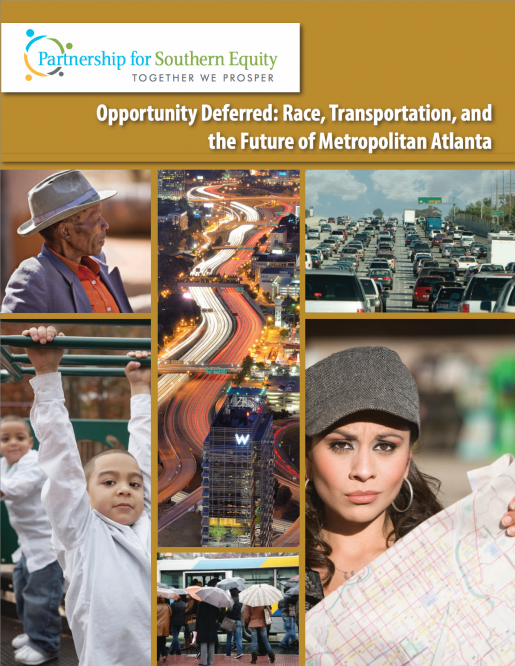
Authors
Tags
Resource Type
Opportunity Deferred: Race, Transportation, and the Future of Metropolitan Atlanta
The Atlanta metropolitan region today faces a choice between regional prosperity and health shared by all residents or a continued legacy of racial disparities and inequity where prosperity is enjoyed by a select few. Opportunities are abundant. Interest in intown neighborhoods is surging. The Metropolitan Atlanta Rapid Transit Authority (MARTA) recently expanded for the first time in four decades. The Atlanta BeltLine is moving forward, promising to make walking and bicycling real options in this sprawling, car-dependent metropolis.
These changes have the potential to improve our quality of life. But stark differences in wealth and racial demographics are still evident across the metro. The region’s northern areas have tended to gain jobs and affluence and have remained mostly white, while the region’s southern areas have been largely bypassed by economic opportunities and have become mostly Black. Gentrification and displacement, combined with decreasing affordable housing stocks are pushing people of color and low-income out of the City of Atlanta and into far-flung exurbs.
Opportunity Deferred describes how this situation came to be and what we can do about it. It documents decades of transportation and housing policies at the federal, state, and local levels that divided neighborhoods with vast freeways while supporting residential segregation. This report includes specific policy and planning recommendations as well as examples from across the country that demonstrate how equity can best be incorporated into decision making throughout city, county, and regional governments.